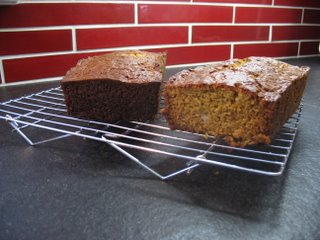Writing & Memory
I was recently asked to write the story of Eli’s birth for my doula. She’s an accomplished photographer, assembling a book of birth photos and stories. It was a nice project for me; I’d written quite a bit in my journal about the day, but fleshing it out into an essay, with feedback from my writing class, was a terrific writing experience.
But after I wrote it, I thought, how much of this is true? What I remember of the day now is what I wrote in my journal a week or so after the fact, by which point some details were probably already lost. When did I start turning the day into a story? While it was still happening? I don’t think I had the wherewithal for that, actually. I do get through a lot of stuff by thinking about the story it will make later, but not labor! But it did start to become a story before I even started telling people about the day, while Tony and Britt and I were all still huddled around brand-new Eli, marveling about our experience. And then I started telling people about it, and then I wrote it down, and now I’ve written it again, and, and, and…
I thought about this particularly because after I wrote this latest version of Eli’s birthday, I gave it to Tony to read, and wondered how much of it he’d remember, or even agree with. But he’s an excellent partner to a writer, knowing that whatever I write is my truth. He can write his own version if he wants.
This is all a lengthy lead-in to a quote that struck me from Julian Barnes’ essay in a recent New Yorker:
My brother remembers a ritual—never witnessed by me—that he calls the Reading of the Diaries. According to him, Grandma and Grandpa each kept diaries, and in the evenings would sometimes read out loud to each other what they had recorded five years earlier. The entries were apparently of stunning banality but frequent disagreement. Grandpa would propose, “Friday. Fine day. Worked in garden. Planted potatoes.” Grandma would reply, “Nonsense,” and counter-cite, “Rained all day. Too wet to work in the garden.”
I just love this. Love picturing the old and crotchety pair reading to each other from their diaries (diaries like my father keeps, of weather and garden reports). Love that they both keep diaries. Love that they disagree! It just cracks me up.
Barnes goes on:
My brother also remembers that once, when he was very small, he went into Grandpa’s garden and pulled up all his onions. Grandpa beat him until he howled, then turned uncharacteristically white, confessed everything to our mother, and swore that he would never again raise his hand against a child. Actually, my brother doesn’t remember this, either the onions or the beating; he was just told the story repeatedly by our mother. And, indeed, if he were to remember it he might well be wary of it: he believes that many memories are false, “so much so that, on the Cartesian principle of the rotten apple, none is to be trusted unless it has some external support.” I am more trusting, or self-deluding, however, so shall continue as if all my memories were true.
And so this is how I write. No, I’m not presuming to claim I write like Julian Barnes, just that I’ll write as if all my memories are true, and go from there.







